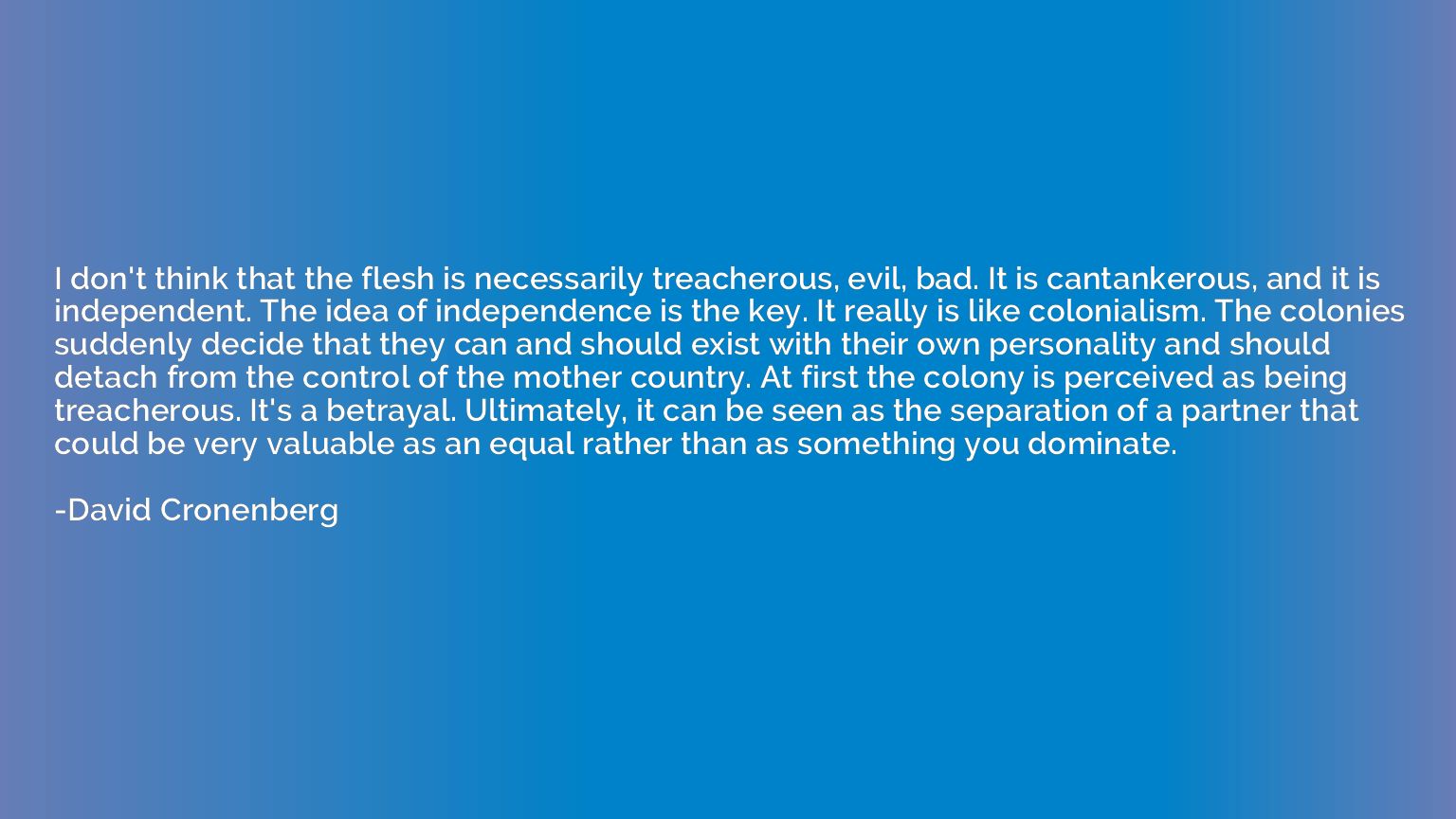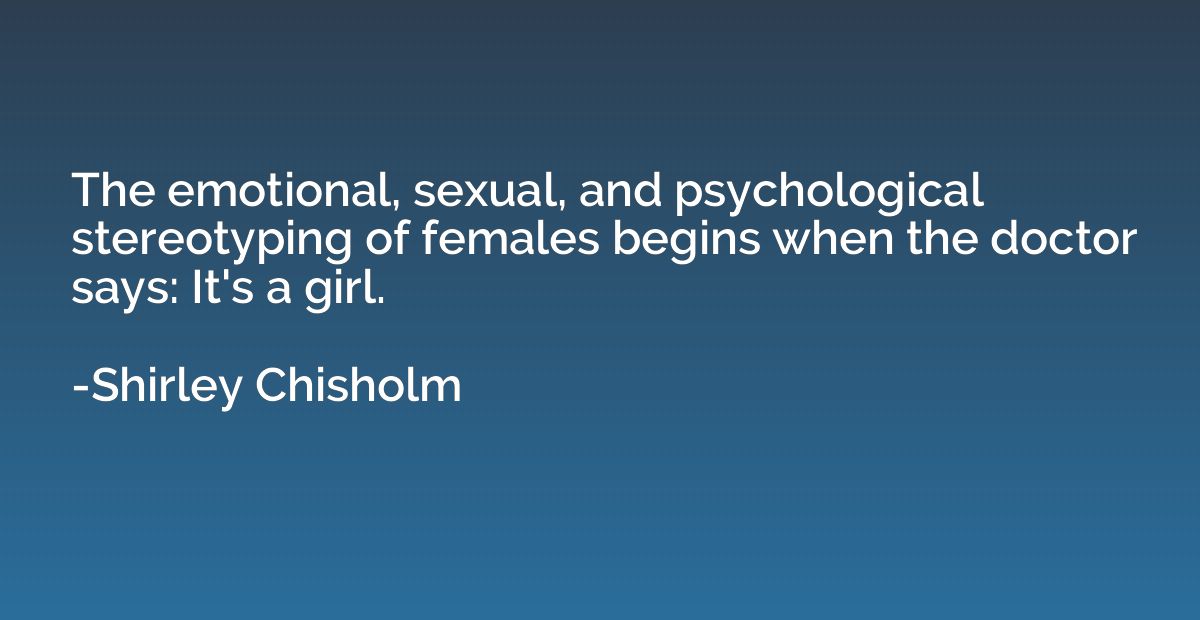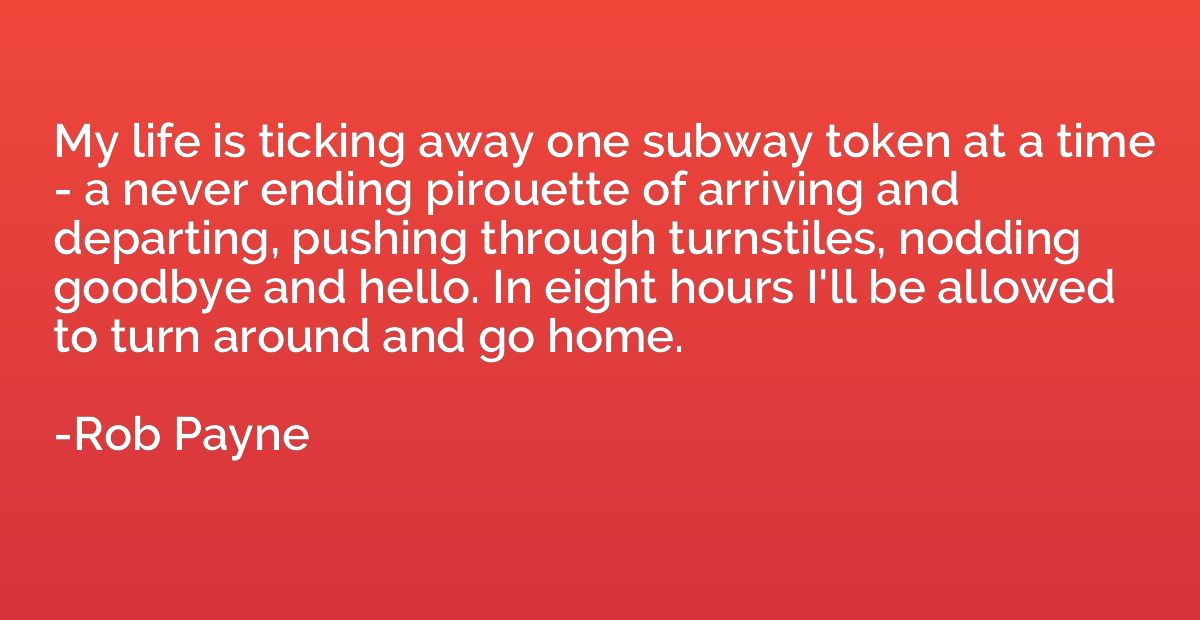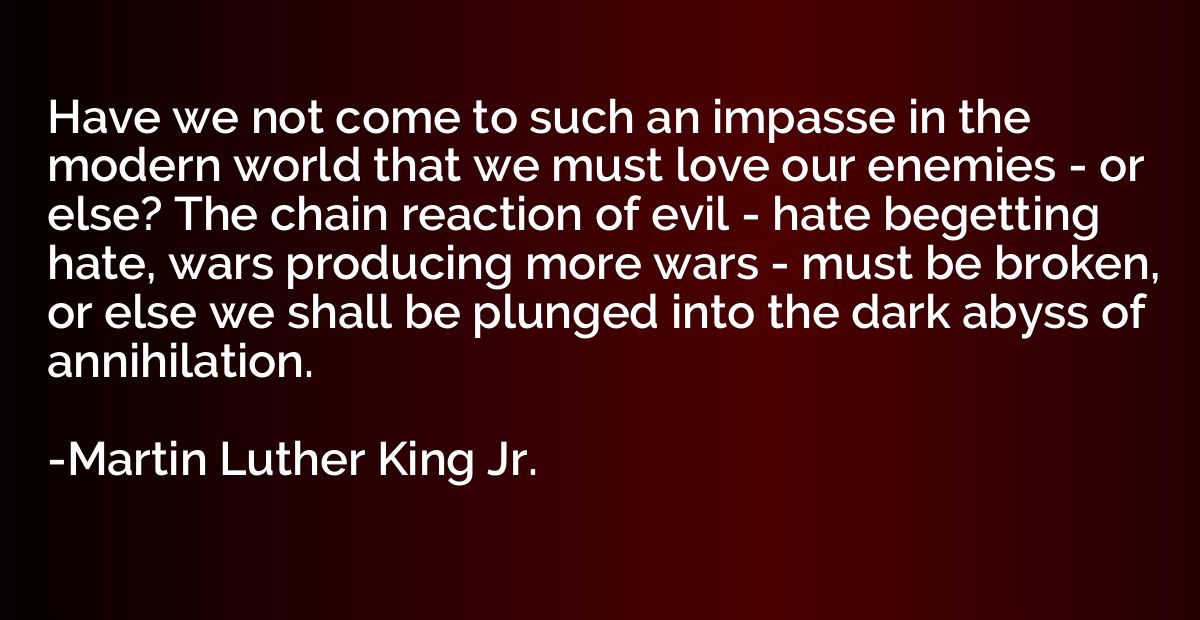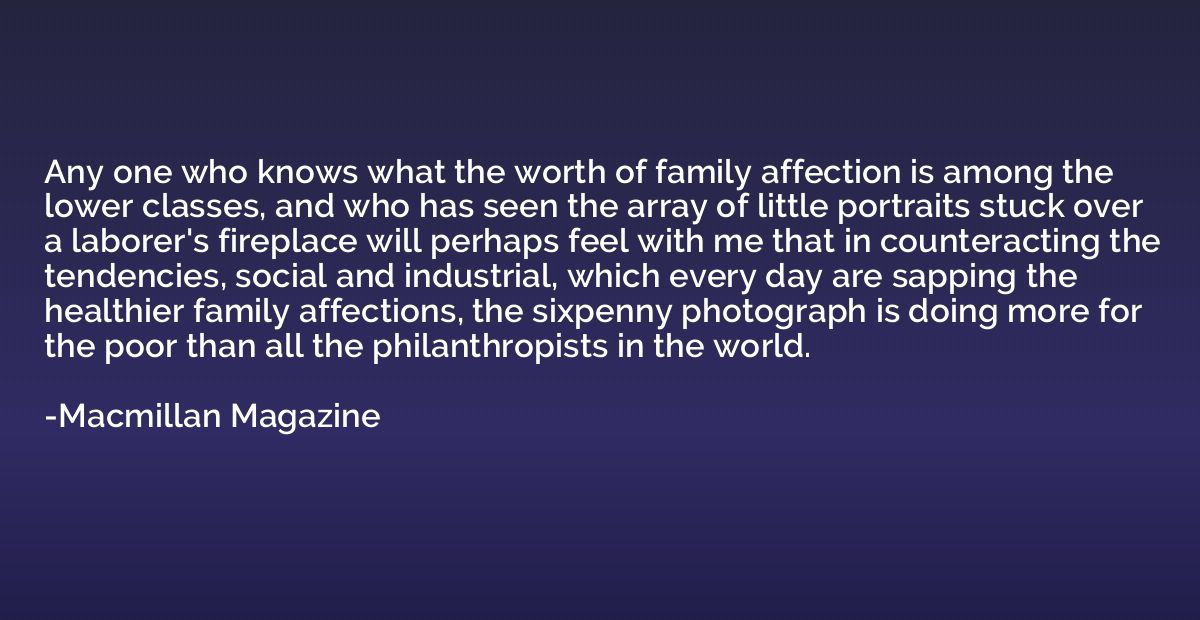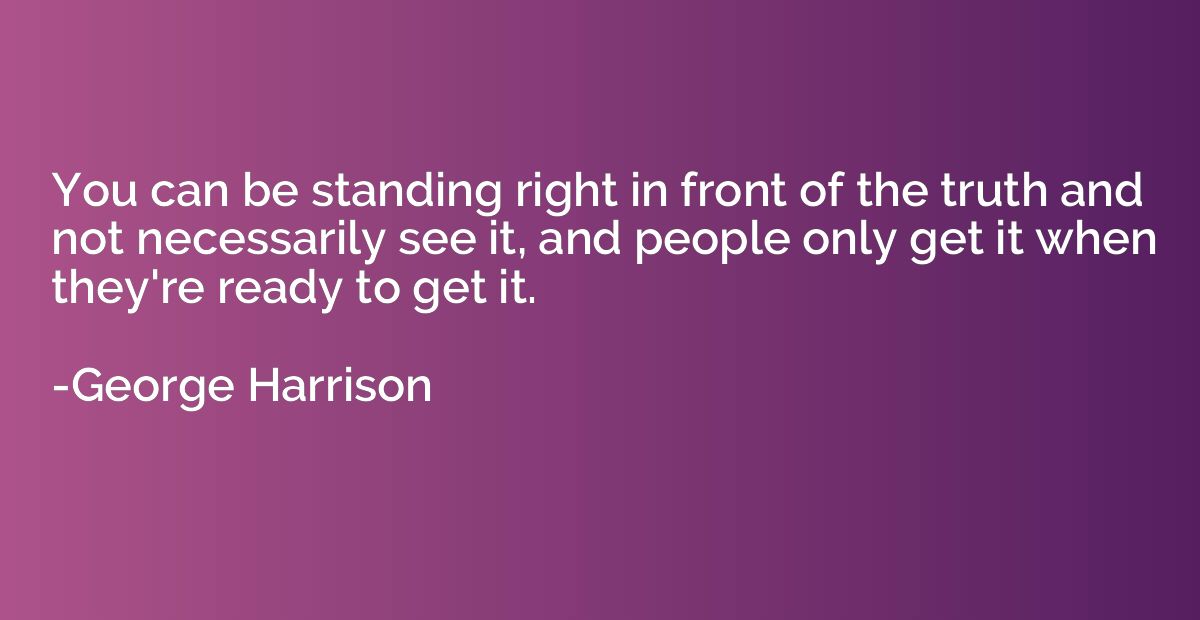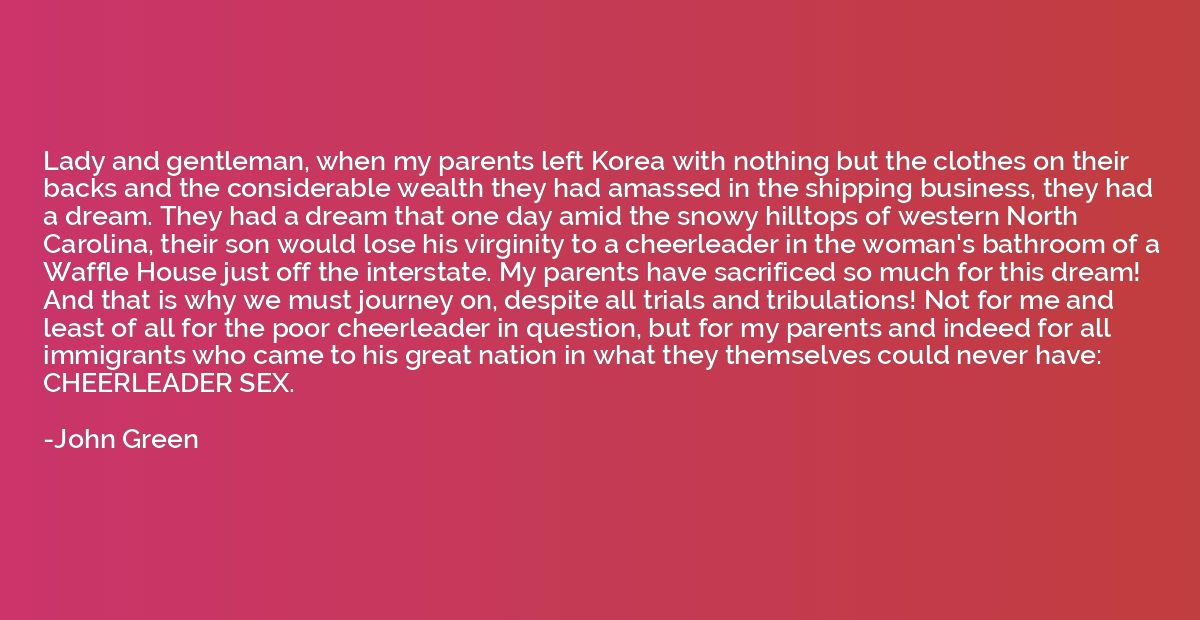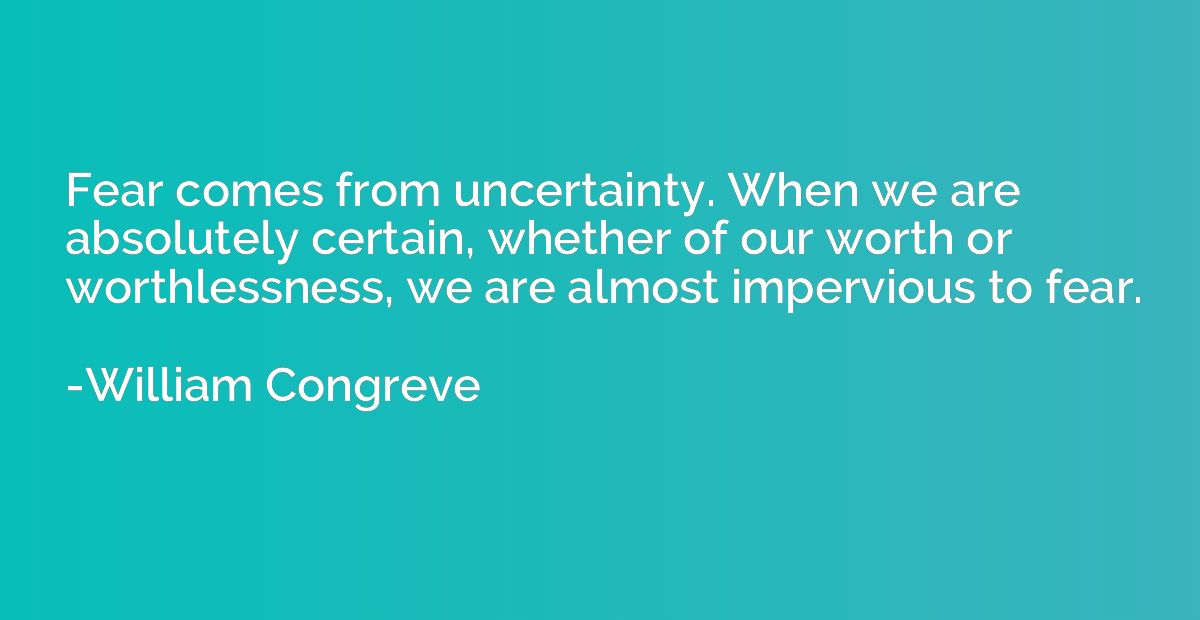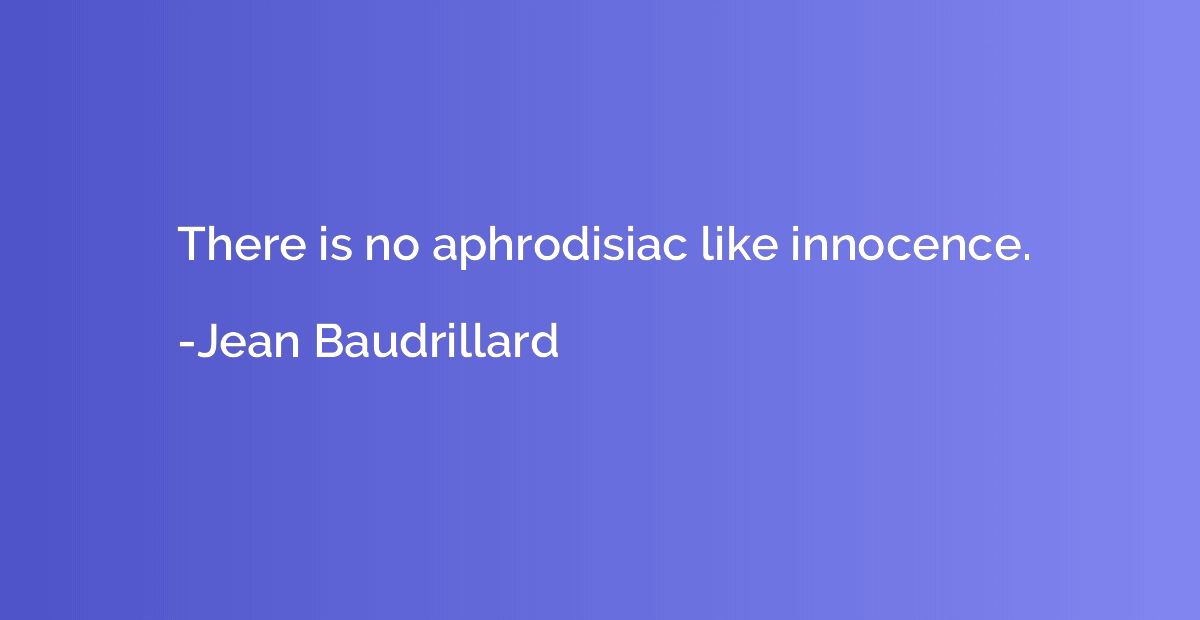Quote by William Shakespeare
Nay, 'twill be this hour ere I have done weeping. All the kind of the Launces have this very fault. I have received my proportion, like the prodigious son, and am going with Sir Proteus to the Imperial's court. I think Crab, my dog, be the sourest-natured dog that lives. My mother weeping, my father wailing, my sister crying, our maid howling, our cat wringing her hands, and all our house in a great perplexity, yet did not this cruel-hearted cur shed one tear. He is a stone, a very pebble stone, and has no more pity in him than a dog. A Jew would have wept to have seen our parting. Why, my grandam, having no eyes, look you, wept herself blind at my parting. Nay, I'll show you the manner of it. This shoe is my father. No, this left shoe is my father. No, no, this left shoe is my mother. Nay, that cannot be so neither. Yes, it is so, it is so -- it hath the worser sole. This shoe with the hole in it is my mother, and this my father. A vengeance on't! There 'tis. Now, sir, this staff is my sister, for, look you, she is as white as a lily and as small as a wand. This hat is Nan, our maid. I am the dog. No, the dog is himself, and I am the dog -- O, the dog is me, and I am myself. Ay, so, so. Now come I to my father: 'Father, your blessing.' Now should not the shoe speak a word for weeping. Now should I kiss my father -- well, he weeps on. Now come I to my mother. O, that she could speak now like a wood woman! Well, I kiss her -- why, there 'tis: here's my mother's breath up and down. Now come I to my sister; mark the moan she makes. Now the dog all this while sheds not a tear nor speaks a word!
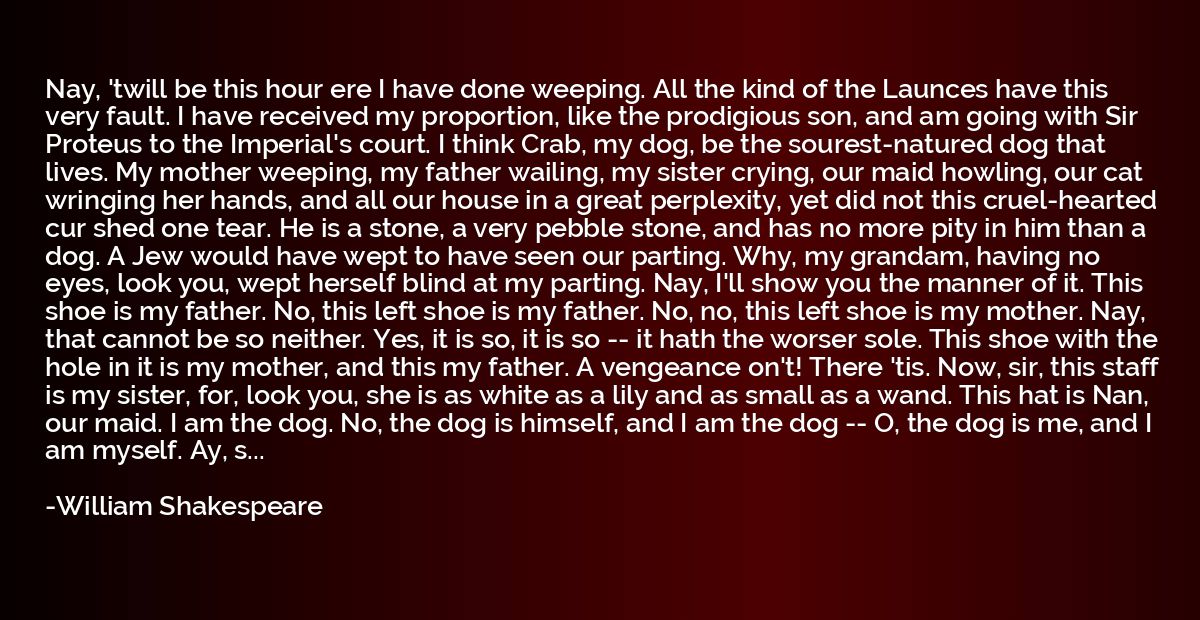
Summary
In this quote from William Shakespeare's play "The Two Gentlemen of Verona," the speaker, Launce, laments the lack of empathy shown by his dog, Crab, when he is bidding farewell to his family. Launce describes the emotional scene at his home, with his mother, father, sister, and maid all weeping and wailing, yet the dog remains indifferent. He compares the dog to a stone, devoid of any compassion. Launce even jokingly suggests that his blind grandmother wept herself blind at their parting. Launce's frustration at the dog's emotional detachment highlights the contrast between human and animal emotions.





